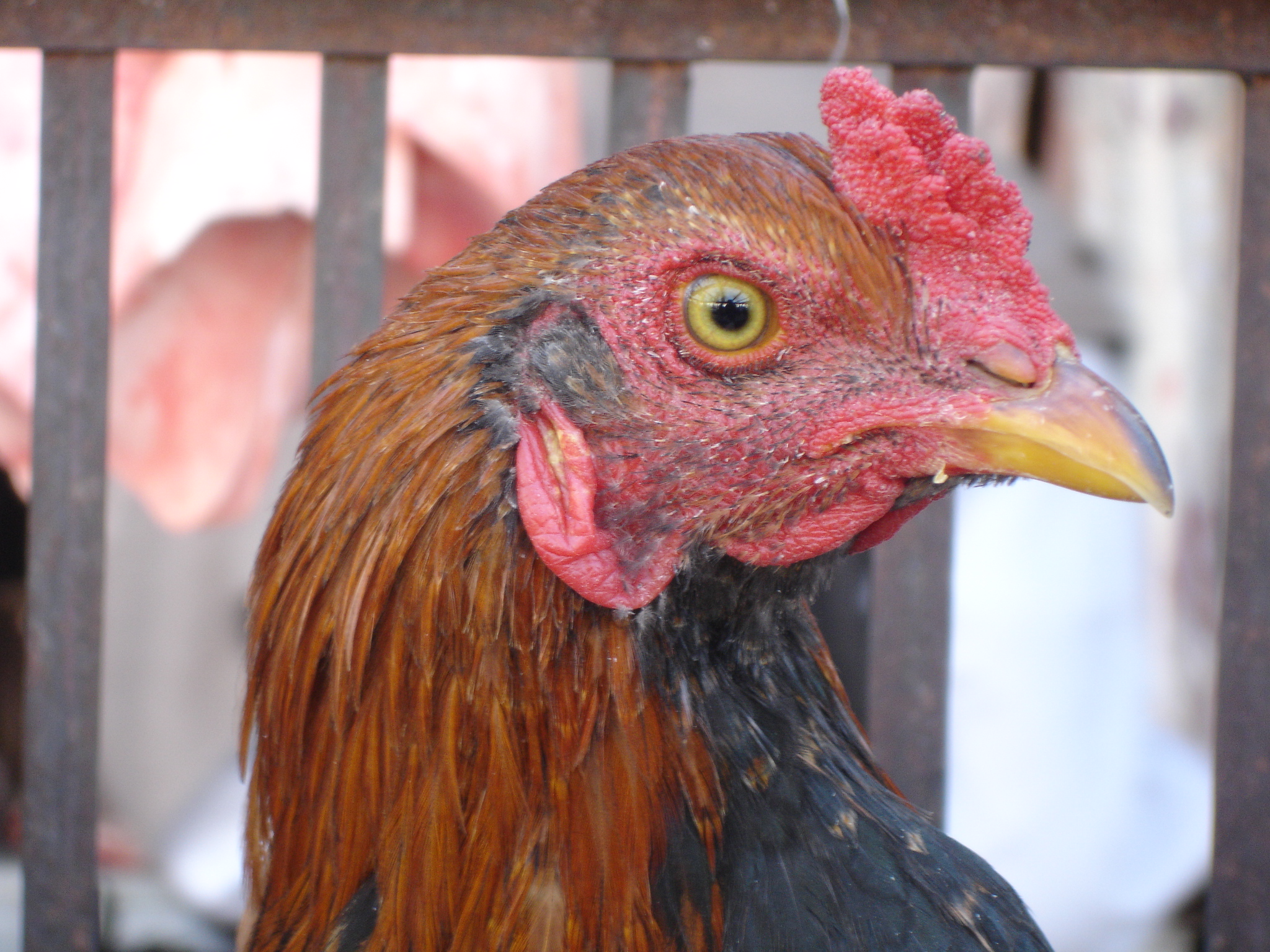With the latest outbreak of bird flu at two commercial poultry farms in Meherpur District, western Bangladesh, on 12 February, bird flu has now spread to 41 of the country’s 64 districts.
To date, close to 600,000 birds have been culled at 238 commercial farms in 82 sub-districts across the country.
Over 800 people have been tested for the deadly H5N1 virus, but no human cases have been reported so far.
"Though bird flu has spread to a great extent, we think it has not spun out of our control," Local Government Secretary Murshid Alam said.
However, M. Alauddin, chief executive officer of Dhaka city, believes efforts to cleanse it and maintain hygiene standards sufficient to prevent the virus's spread are not enough.
 Photo: Shamsuddin Ahmed/IRIN  |
| Close to 600,000 chickens across the country have been culled so far |
Lack of knowledge on how to safely handle poultry, particularly among backyard poultry farmers, is the main problem.
“We heard about the disease only very recently. There were occasional talk shows on TV and radio, but they never said that bird flu could kill all our flocks in one night,” said Rabeya Begum, 45, of Savar who lost all her 11 chickens to the virus two weeks ago.
There is also general confusion as to where the disease comes from.
“Some say migratory birds carry the germ. Some say it comes from across the border. Some say it spreads from big poultry farms,” said Rabeya’s husband Mokhter Ali, a 50-year-old vegetable hawker.
“The local vet says we should keep our flocks shut up inside the coops. But, for how long?” he asked.
“These birds will starve to death if we do not set them free. We are poor people. We can’t buy feed for the chickens. They scavenge their own food,” he explained.
Habits that harm
In Bangladesh chickens are traditionally bought live from the market and slaughtered at home - and this presents a challenge.
After the bird’s throat is slit, it thrashes about and its blood sprinkles all over the courtyard. The blood is not washed away, nor are the remains of the bird properly disposed of. Instead, the bird is thrown away where wild birds may eat it.
Home-grown chickens generally roam about the courtyard and defecate, with residents carrying the faeces into their homes on their bare feet.
Chicken coops are generally cleaned each morning, but those cleaning them out rarely if ever cover their faces with a mask or a piece of cloth to prevent exposure to faecal dust.
Amongst the very poorest people, residents and animals, including chickens, often share the same house - and chicken faeces are either dumped in the backyard or spread over the kitchen garden as manure.
 Photo: Shamsuddin Ahmed/IRIN  |
| A poultry worker cleaning without any protective equipment |
A poultry worker cleaning without any protective equipment
A poultry worker cleaning without any protective equipment
Hygiene practices need to be changed
Traditional health and routine hygiene practices also need to be changed.
“We must learn to wash our hands several times a day. We must dispose of chicken faeces the same way as we dispose of human faeces,” Habibur Rahman, an eminent livestock scientist and bird flu expert, said.
“Chicken faeces are more harmful than human faeces. We must put them in concealed pits the way we do our own faeces. If we can do that then we will be able to put an end not only to bird flu, but also to a host of other diseases that we suffer from,” Rahman said.
“There has to be a persistent campaign on bird flu prevention and management,” Rahman said, adding that there was hardly a family in rural Bangladesh that did not raise a dozen or so chickens in their backyard.
“Bird flu has spread to those backyard farms. We cannot prevent the further spread of bird flu unless we can inform, motivate and mobilise the backyard farmers to take measures to prevent the disease,” said M.M. Khan, managing director of Advance Animal Science Company Limited, which specialises in bird flu research.
sa/ds/cb
This article was produced by IRIN News while it was part of the United Nations Office for the Coordination of Humanitarian Affairs. Please send queries on copyright or liability to the UN. For more information: https://shop.un.org/rights-permissions





